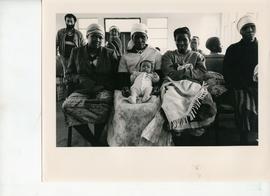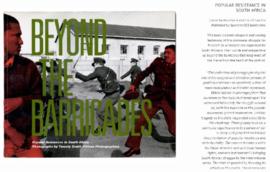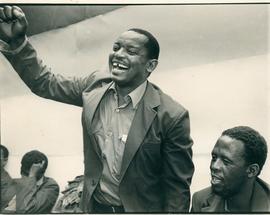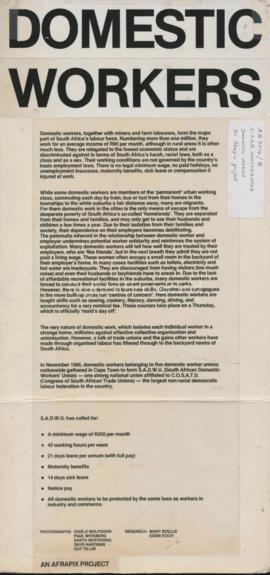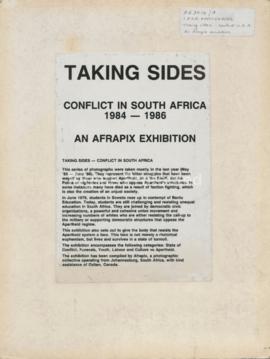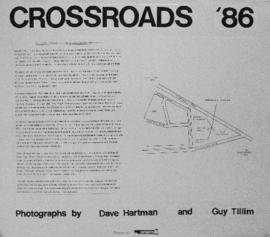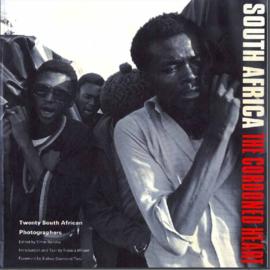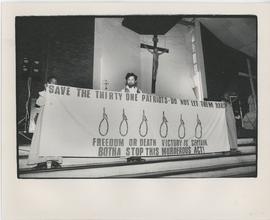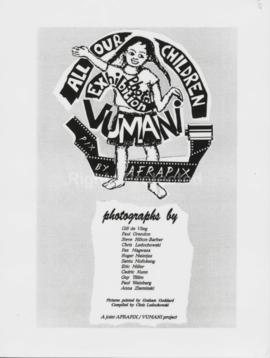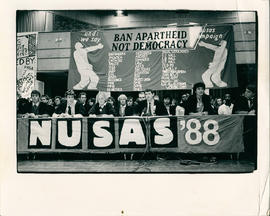National Progressive Primary Health Care Network, Records
- ZA AFRAPIX AP3-AP3.1
- Série organique
- 1980s-1990s
Fait partie de COLLECTIONS IN VARIOUS INSTITUTIONS
Formed in September 1987, the National Progressive Primary Health Care Network was established in order to promote Primary Health Care, particularly to poor people in rural areas. The NPPHCN was committed to equal, accessible, good health services which everyone can afford and access, and that there should be a national health service.
The collection contains a number of images by Afrapix photographers, which were used by the NPPHCN for exhibitions, conferences, pamphlets and other outreach material. Included are Graham Goddard, Guy Tillim, Cedric Nunn, Roger Meintjes, Chris Ledochowski, Lesley Lawson, Gisele Wulfsohn, Gideon Mendel, Anna Zieminski, Steve Hilton-Barber, Gill De Vlieg.



